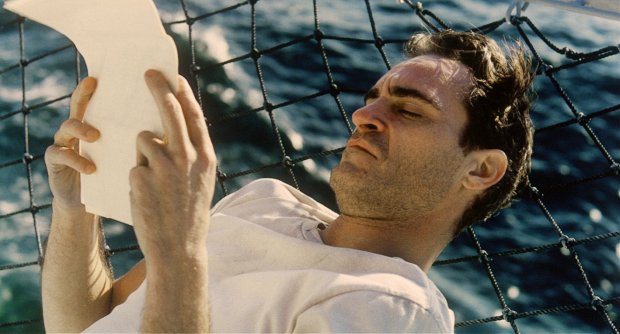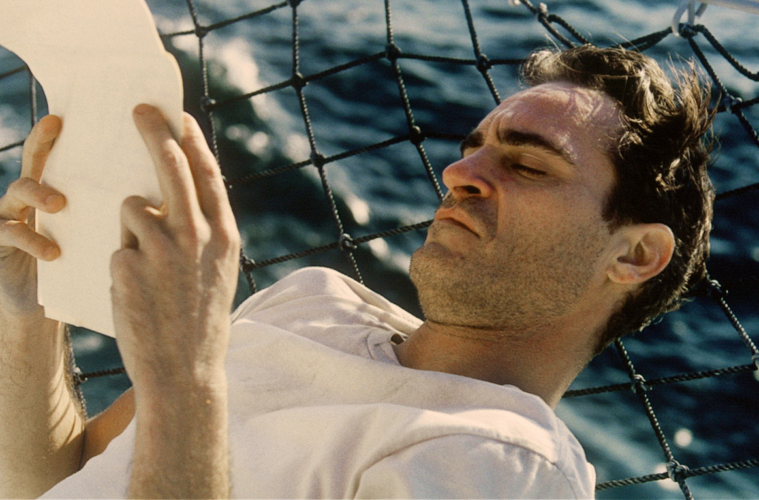
Dailies is a round-up of essential film writing and other highlights from our colleagues across the Internet — and, occasionally, our own writers. If you’d like to submit a piece for consideration, get in touch with us in the comments below or on Twitter at @TheFilmStage.
 Before he passed away at the age of 65 due to extended battle with skin cancer, James Rebhorn wrote his own obituary.
Before he passed away at the age of 65 due to extended battle with skin cancer, James Rebhorn wrote his own obituary.
Over at RogerEbert.com, Matt Zoller Seitz pleads with critics to discuss filmmaking:
Movies and television are visual art forms, and aural art forms. They are not just about plot, characterization and theme. Analytical writing about movies and TV should incorporate some discussion of the means by which the plot is advanced, the characters developed, the themes explored. It should devote some space, some small bit of the word count, to the compositions, the cutting, the music, the decor, the lighting, the overall rhythm and mood of the piece.
With the release of Noah and other Christian-themed films this season, Scott Nye looks at the greatest in the genre over at Movie Mezzanine.
With Son of God and God’s Not Dead finding modest purchase at the box office (and considerable fruition in think pieces everywhere) and Darren Aronofsky’s Noah ready and waiting to frustrate just about everybody, it would seem that Christians have a harder time than ever making the case that there just aren’t any movies for Christians out there. As absurd as I’ve found this claim in the past, I was reminded in researching this list just how entrenched Christian ideology is in Western art, even amongst those who claim to have abandoned it. In W. Somerset Maugham’s novel Of Human Bondage, the protagonist is confronted with the idea that, although he has reasoned out that God does not exist and that religion is a lie, he cannot fully abandon the morality that was imparted to him through religious teaching; that no matter how little he may believe in God, the idea has still had a profound effect on the way he lives his life. So, too, does one see such an effect on mainstream cinema, and indeed, on the canonization of certain titles and directors.
Our contributor Peter Labuza talks to Dana Stevens about her career as a critic, as well as Max Ophüls‘ drama Letter From An Unknown Woman on the latest episode of The Cinephiliacs.
Carson Lund and Kenji Fujishima revisit Paul Thomas Anderson‘s The Master at InReviewOnline:
For our second Passing Notes feature, Carson and I wanted to find a way to pay tribute to the late, great actor Philip Seymour Hoffman, who died last month, on Feb. 2, at the much-too-young age of 46 from a massive drug overdose. Since I chose Mean Streets in our inaugural conversation, I allowed Carson to pick the film this time, and thus our follow-up exchange is on Paul Thomas Anderson’s The Master. As someone who found himself not fully sold on the film itself even after two theatrical viewings upon its release in the fall of 2012, I was curious to see how I’d respond to this third viewing (albeit on Blu-ray and not in 70mm, as was the case with those earlier two screenings). My reaction this time around surprised the heck out of me, to say the least.
In honor of Fox Searchlight celebrating 20 years, our editor-in-chief, Jordan Raup, runs through his 20 favorite films they’ve distributed.
At The Dissolve, Mike D’Angelo takes an extensive look at the career of Joel and Ethan Coen:
It’s taken the better part of three decades for people to catch on to the strain of sorrowful pessimism in the Coen brothers’ work, or at least to grudgingly accept it. For many years, the Coens were dismissed as soulless mimics who looked upon all of their characters with contempt—a cardinal sin in some circles. The same objection had previously been lodged, mostly by the same critics, against filmmakers like Robert Altman and Stanley Kubrick, both of whom shared the Coens’ grim outlook (and who, like them, tended to be unforgiving toward human nature even in their ostensible comedies). Because the Coens have tried their hand at numerous genres, from noir to screwball to outright surrealism, it wasn’t immediately apparent that they were making the same basic movie over and over. After 30 years and 16 features, however, it’s now hard not to notice that prototypical Coen protagonists are hapless, well-meaning schlemiels upon whom life exacts a toll that’s much worse than they deserve. There are exceptions, but even these generally involve loss in some form or another. The Dude’s rug really tied the whole room together.

